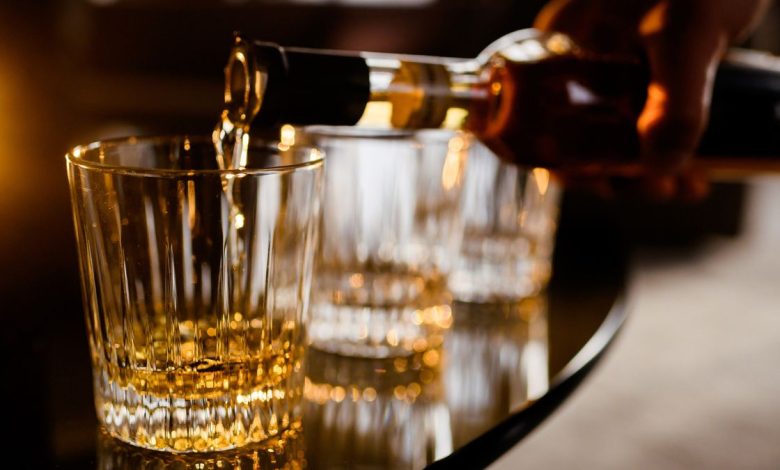Report: 1 in 5 Alcoholic Drinks are Fake – How to Spot Counterfeit Liquor

In South Africa, a disturbing statistic has emerged: one in five alcoholic drinks are fake. This alarming trend not only poses serious health risks but also threatens the economy, as counterfeit alcohol continues to flood the market. Understanding how to spot counterfeit liquor is critical to safeguarding both your health and your wallet. In this article, we will explore the rise of fake alcoholic drinks, the dangers they pose, and practical tips to help you identify counterfeit products.

The Growing Problem of Fake Alcoholic Drinks in South Africa
A recent report by Euromonitor International, commissioned by the Drinks Federation of South Africa (DF-SA), has revealed that nearly one in five alcoholic drinks sold in South Africa is counterfeit. This rapidly growing black market for fake alcohol is wreaking havoc on public health and the economy. According to experts, the illegal alcohol trade has grown by 55% in volume since 2017, reaching an estimated 773,000 hectolitres of fake alcohol in 2024.
This surge is largely driven by consumer demand for cheaper alcohol, with many willing to purchase counterfeit drinks if they are up to 40% cheaper than legitimate products. The South African Revenue Service (SARS) is also feeling the impact, with an estimated R16.5 billion in excise duties lost each year due to this illegal trade.
How to Spot Counterfeit Liquor
With the increasing risk of consuming counterfeit alcoholic drinks, knowing how to identify fake liquor has never been more important. There are several key indicators that can help consumers distinguish genuine products from their counterfeit counterparts. Here are the most important tips:
1. Examine the Packaging
One of the easiest ways to spot counterfeit liquor is by examining the packaging. Authentic alcohol brands invest in high-quality printing and secure packaging. Counterfeit bottles, however, often feature poor-quality labels, inconsistent fonts, or misspelled brand names. If the bottle feels unusually light or if the design seems off, this could indicate a fake product.
2. Check the Seal
Always check the seal of the bottle. Genuine liquor products will have a secure, tamper-evident seal. If the seal is damaged, broken, or seems to have been tampered with, it could be a sign that the alcohol inside is not authentic. A sticky residue around the neck of the bottle may also indicate that the seal has been reattached or altered.
3. Verify Tax Stamps and Authenticity Features
In South Africa, legitimate alcohol bottles often feature tax stamps or other official markings that signify their authenticity. These stamps may include overt, covert, and forensic security features that are difficult for counterfeiters to replicate. If a bottle lacks a tax stamp or if the stamp looks unusual, it’s worth questioning the product’s authenticity.
ALSO READ: Proudly SA Online Store Launches: How to List Your Business and Boost Visibility
4. Assess the Price
If the price seems too good to be true, it likely is. Counterfeit alcohol is typically sold at significantly lower prices to attract consumers. Be cautious when purchasing alcohol at a price well below market value. Fake liquor can sometimes be sold as a bargain, but the risks it poses far outweigh any savings.
5. Smell and Taste the Product
Counterfeit alcohol may have a chemical smell or an unusually harsh taste. Genuine liquor typically has a smooth, recognizable aroma and flavour that consumers can easily identify. If you notice an off-putting smell or taste, it’s a clear warning sign that the drink could be fake.
Health Risks of Counterfeit Alcohol
The dangers of consuming counterfeit alcoholic drinks are far from just economic. These illicit products are often mixed with toxic substances such as methanol, isopropyl alcohol, and even industrial-grade ethanol. These chemicals can cause severe health issues, including blindness, organ failure, and even death.
In South Africa, there have been several reported cases of methanol poisoning, which can occur when people consume alcohol contaminated with methanol, a highly toxic substance. Symptoms of poisoning may include nausea, vomiting, abdominal pain, dizziness, and confusion. In severe cases, it can lead to respiratory failure and death.
During the COVID-19 lockdowns, South Africa witnessed a significant number of deaths due to the consumption of homemade alcoholic brews laced with dangerous chemicals. This highlights the critical importance of ensuring that the alcohol you consume is legitimate and safe.
ALSO READ: Fake Alcohol on the Rise: How to Identify Counterfeit Drinks in South Africa
The Economic Impact of Counterfeit Alcohol
Counterfeit alcoholic drinks not only harm public health but also have a profound impact on South Africa’s economy. As mentioned earlier, the illicit trade costs SARS approximately R16.5 billion in lost excise duties every year. This undermines the government’s efforts to generate revenue and fund essential public services.
Furthermore, counterfeit alcohol affects legitimate businesses. It creates unfair competition for authorised producers and distributors, often pricing them out of the market. In addition, the resources required to combat this illicit trade, such as enforcement measures and public education campaigns, place additional strain on both industry stakeholders and government agencies.
Protect Yourself from Fake Alcoholic Drinks
The rise of counterfeit alcohol in South Africa is a growing concern. As one in five alcoholic drinks sold in the country is now fake, consumers must be vigilant in order to protect themselves from the health risks posed by counterfeit liquor. By examining packaging, checking seals, verifying tax stamps, and being cautious about suspiciously low prices, you can reduce the risk of falling victim to this dangerous trade.
It’s also important to stay informed about the dangers of counterfeit alcohol and support initiatives that aim to combat the illicit alcohol trade. The collaboration of government, industry bodies, and consumers is crucial to ensuring the safety and well-being of the public.
If you suspect you’ve purchased counterfeit alcohol, report it immediately to local authorities. By raising awareness and being cautious, we can all contribute to reducing the prevalence of fake alcoholic drinks in South Africa.

